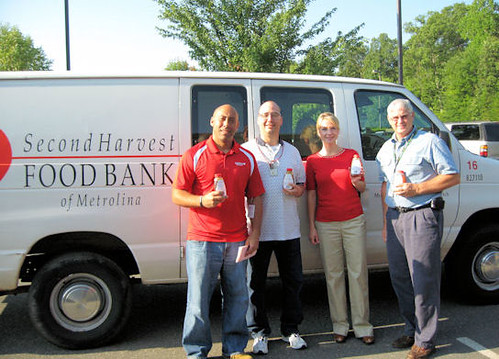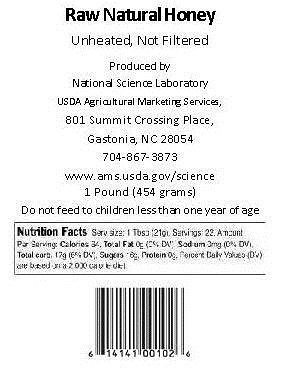In an intense around-the-clock operation, more than 60,000 worker bees have churned out 30 pounds of raw honey from a USDA laboratory in Gastonia, N.C.
The People’s Garden Initiative beehives are managed by the staff of National Science Laboratory (NSL), a part of the Agricultural Marketing Service (AMS). To support the 2011 Feds Feed Families initiative the team has donated all of the honey to the Second Harvest Food Bank of Metrolina, which encompasses the Charlotte, N.C., metropolitan area.
The honey is a product of local poplar and Tupelo trees. In a process known as centrifuge extraction, the sweet nectar was spun from honeycomb and then poured into 1-pound bottles and labeled as shown below.
In May, the federal government kicked off the Feds Feed Families campaign with a goal to raise two million pounds of food this summer. Food banks across the country are facing severe shortages of non-perishable items, leaving children at home during the summer without the benefit of school nutrition programs.

The NSL honey donation will help recipients in a number of ways. Honey is a great food donation because it has several benefits, including being a natural sweetener that is rich in antioxidants. The product is also primarily composed of carbohydrates—the body’s main source of energy. Honey is not recommended for children younger than one year old because of the natural presence of botulinum endospores. The digestive systems of older children and adults are able to destroy the spores more easily.
You can find more nutritional facts and other information about honey by visiting the National Honey Board website. The board is one of several research and promotion boards that AMS oversees to support the agriculture industry.

